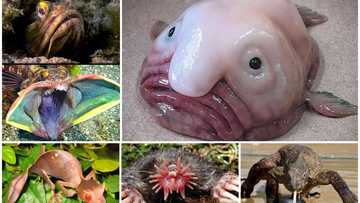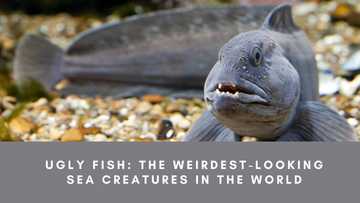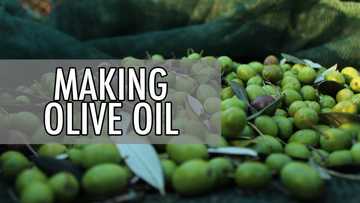Catfish farming in Nigeria
If you dream to try yourself in agribusiness and dream to succeed in this field, then you should consider catfish farming. In this writing-up, we will provide you with catfish farming facts, give necessary information concerning catfish farming in Nigeria, consider the rules of breeding and growing fish in the subsidiary farm. Keep reading because many interesting is ahead.
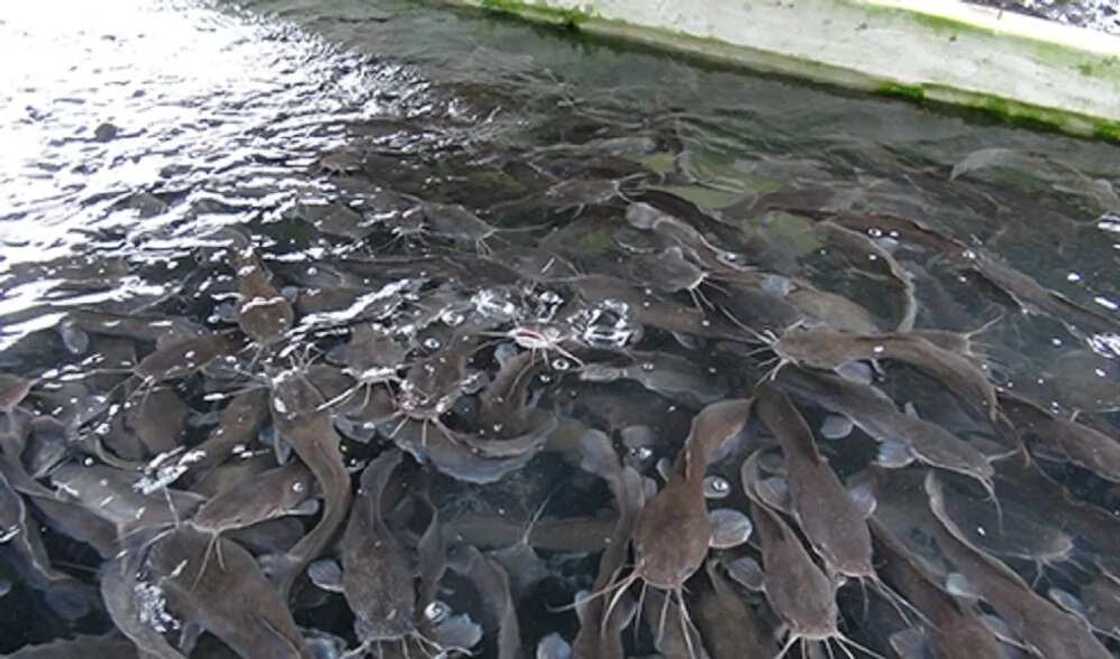
There are many kinds of fish growing in Nigeria, however, many people like catfish because its meat is juicy, soft and tasty. However, not everyone knows that this fish can be grown quite easily even at a small fish farm, you can even organize catfish farming at home.
The African catfish is delicious, easy to keep and grows fast enough. The biology of catfish is such that they can live without water for two days, breathing the usual air. They have both gills and lungs. This is a very strong and clever fish. From the pits with water, where they fall, catfish can jump up to 2 meters in height and crawl to look for water.
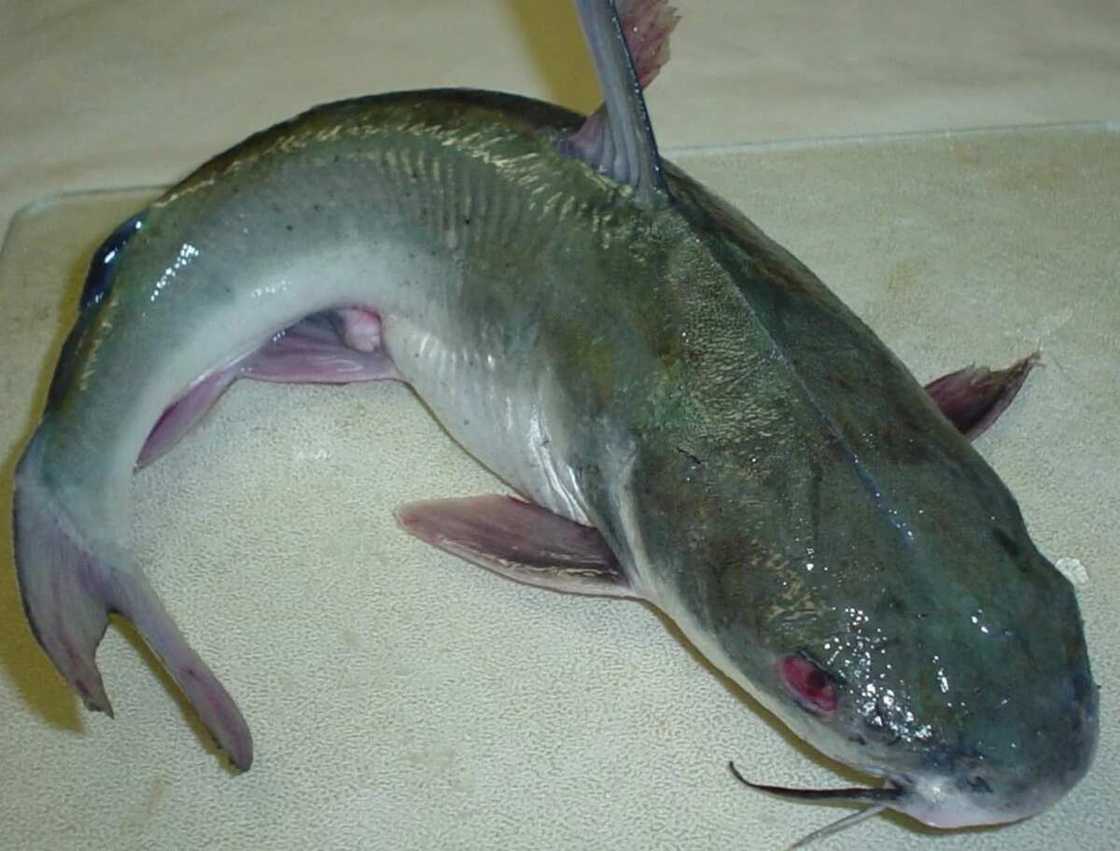
How to rear catfish?
African catfish reaches a table size, which is an average weight of 1-1.5 kilo, in 5-6 months.
Catfish can participate in reproduction at the age 1.5 - 2 years. The female reaches sexual maturity by 6 months, but the best results are obtained at the age of 2 years. Usually during breeding, the parent herd is kept in separate tanks. The feed must be carefully balanced. The protein content of such feed should be at least 38%. In a day, each catfish should consume at least 1.5% of its weight. Feed is very important issue especially if we are talking about fingerlings. Of course, feed is the largest operating cost, we do not count expenses for a pond or a tank. There are different types of feed for catfish. Finely ground meal and flour-type feeds containing 40-50% of protein are used. To lower the cost for feeding you should try catfish farming manual feeding production.
Excellent results can be obtained by using feeders. One feeder is used for 10 squares of the tank/pond area. Manual feeding ensures a more equal distribution of food. This leads to differentiation of the fish mass. The African catfish, which is diluted in a controlled way, shows significant weight gain in a relatively short period of time. After the completion of all stages, the fish are sorted.
Pools and trays after the cultivation of fish are washed and cleaned until the next generation. Before new use, treat with antiseptic solution.
READ ALSO: Pig farming in Nigeria
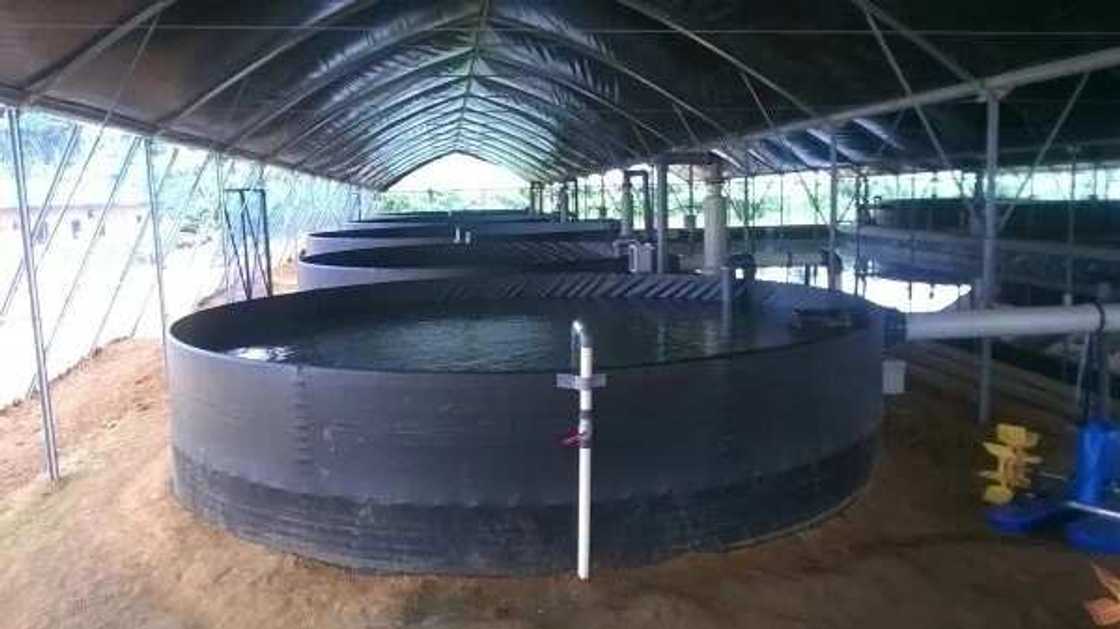
Profitability of catfish farming in Nigeria
Catfish sells very fast because it is cheaper than meat, so there is a high demand on it.
This kind of fish grows quickly, farmers even can increase the speed of fish grows by adding special feeds.
Catfish grows quickly. The period of growth from larvae to commercial fish is only 6 months. Catfish is omnivores and eat almost everything. In Africa, catfish eat both fruit and antelope meat, which remains after the "crocodile dinner". You will not spend much on the feed.
How to start catfish farming in Nigeria
To start your own cat fish farm in Nigeria you need to follow the below-mentioned requirements.
Analyze fish market in your area
You want to build a profitable business, so you need to investigate the demand for the catfish in your area, to find a market, where to supply your production. To begin with, you can conclude contracts with small wholesale resellers, take fish to markets, restaurants, cafes and retail stores. The ideal customer is retail chains, which are not so easy to get into but everything is possible. You need to have a constant turnover of catfish, in order to avoid overcrowding of your tank or pound because it can lead to some disease outbreak and fish plague, and as a result loss of money.
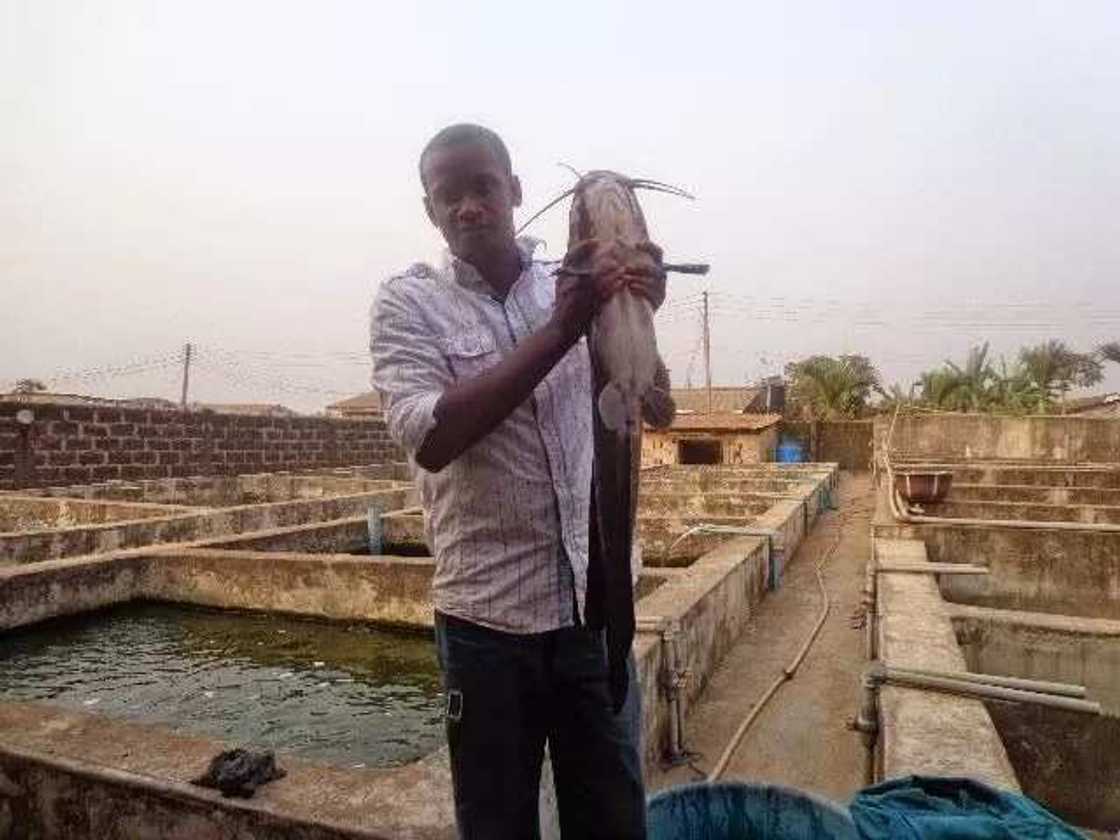
Ensure security of land and decide what size of farm you plan to have
The size of your catfish farm depends of course, on the starting capital you have. You can start from small-scale catfish farming using one tank or a small pond. Catfish farming in tanks is an option for temporary business, if you want to have a real profitable long-term business, you should think about catfish farm in a pound. However, in order to avoid harm and money loss, it is better to start from small, to understand how this business works.
Your business should not do any harm to the environment. Try to choose the proper place taking into account the size of the future farm, necessity of water supply and of course, not to spend a small fortune.
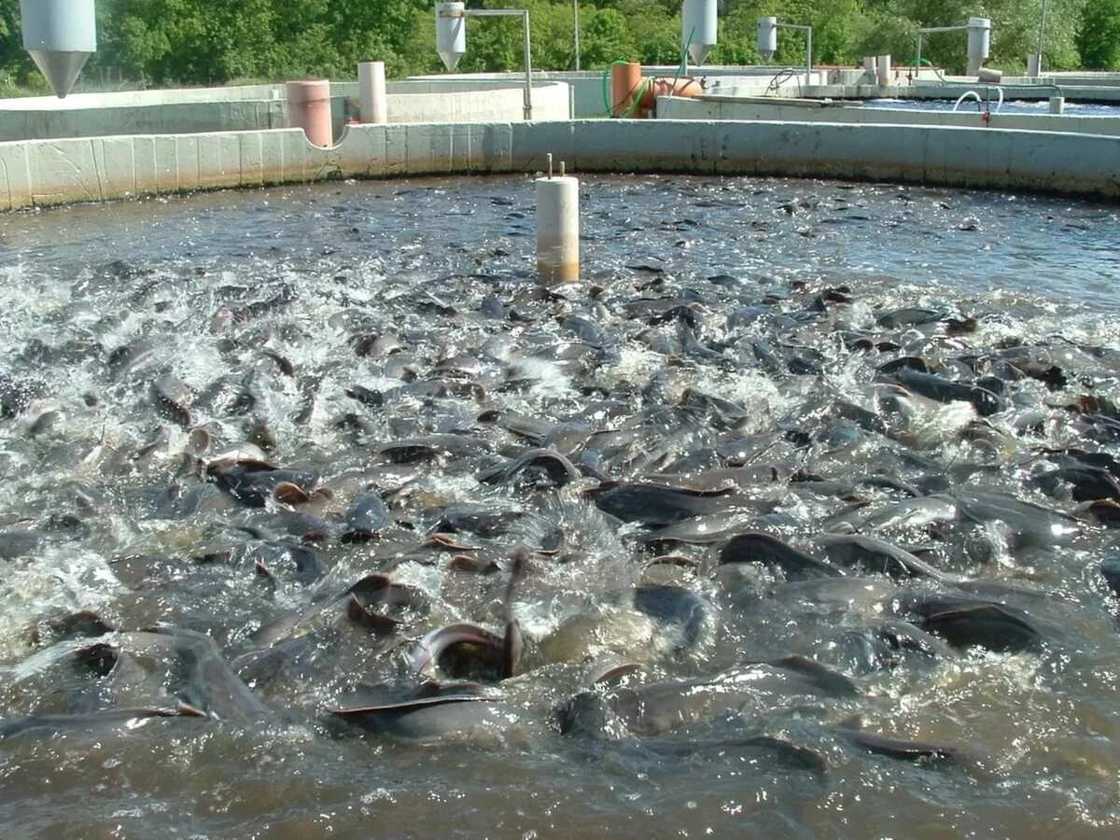
Build up tanks or pounds
Use services of experts (construction engineers), who will build a fish farm following all construction requirements. Ensure the proper drainage.

Read also
REPORT: How COVID-19 increased child labour in Lagos state (parents, children share experiences)
Borehole or a river nearby
A water supply is one of the main necessity in fish farming, water must be changed regularly, so ensure the constant source of water. Catfish is a freshwater animal and you should assure the high-quality water. Do not use rainwater.
High-level tank
Your ponds will be supplied by water from this water reservoir. It should be connected to the pounds through the special plumbing system.
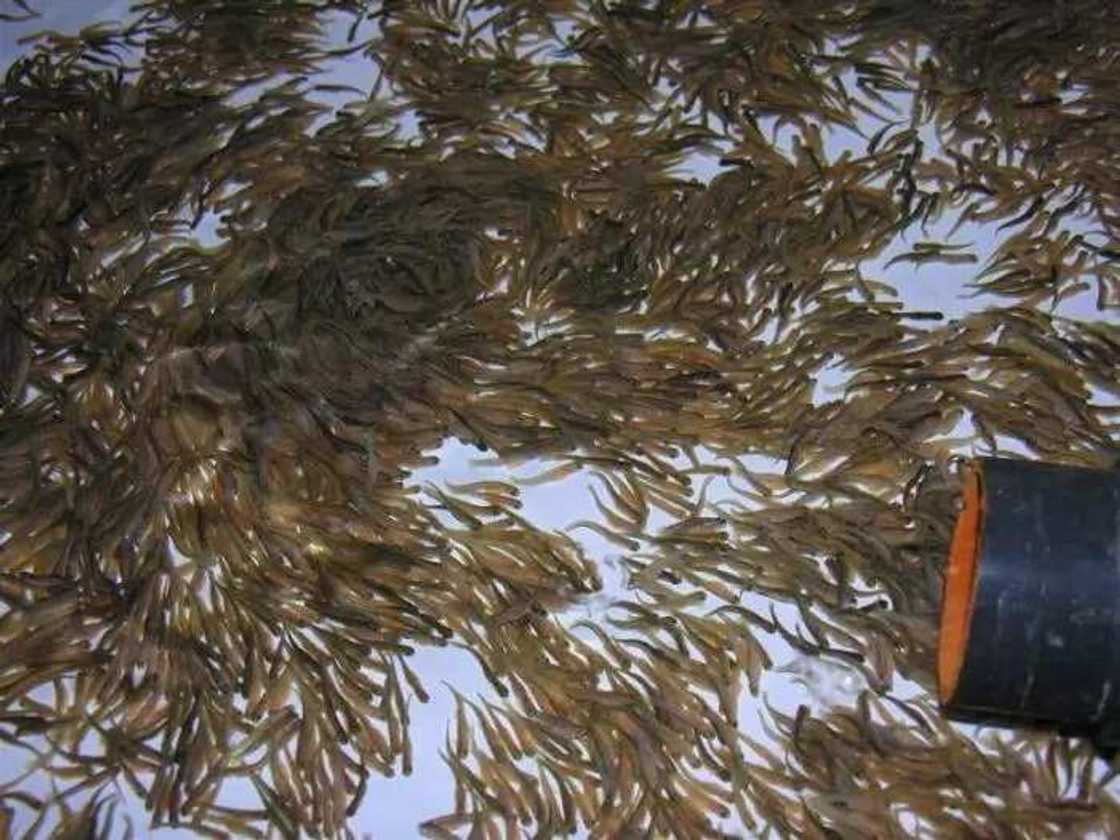
Fingerling
There are two possible ways: either to buy fingerling from another specialized farm or to grow them by own forces. Remember that it is not an easy one. If you choose another farm growing fingerling from larvae, you must be sure in the quality of the fingerling you buy.
Proper training
It is a serious business, so it is better to be well trained, we are not talking about one-day seminars, a high-quality training takes about two months.
Other useful catfish farming tips
It wouldn’t go amiss to follow the tips below to build up a profitable business.
Learn about your competitors
To win on the market of catfish selling you need to know more about your competitors. You need to have a strategy and analyze catfish farms nearby and their work.
Keep records
Every business requires record keeping. Catfish farming is not an exception. Record your costs, expenses, results and profit. In such way, you will see how your business works and how profitable it is.
Prevent diseases
Fish also can get sick, so you should be attentive to your fish. When you have noticed such symptoms as open sores, loss of color, inactivity, , cloud eyes, frayed fins, difficult breathing, red spots on the body or inflammation of skin and others, probably it is a bacterial infection. Erratic swimming,darting, scratching etc. are the signals for fungal infections. Visible spots, warms, inactivity, scratching, loss of appetite, excess mucus are signs of parasitic infections. Watch your wish constantly to prevent mass loss of your fish. Treat your catfish as your children.
To keep a large number of fish, you need either to purchase special tanks, or have access to large enough earthen pond.
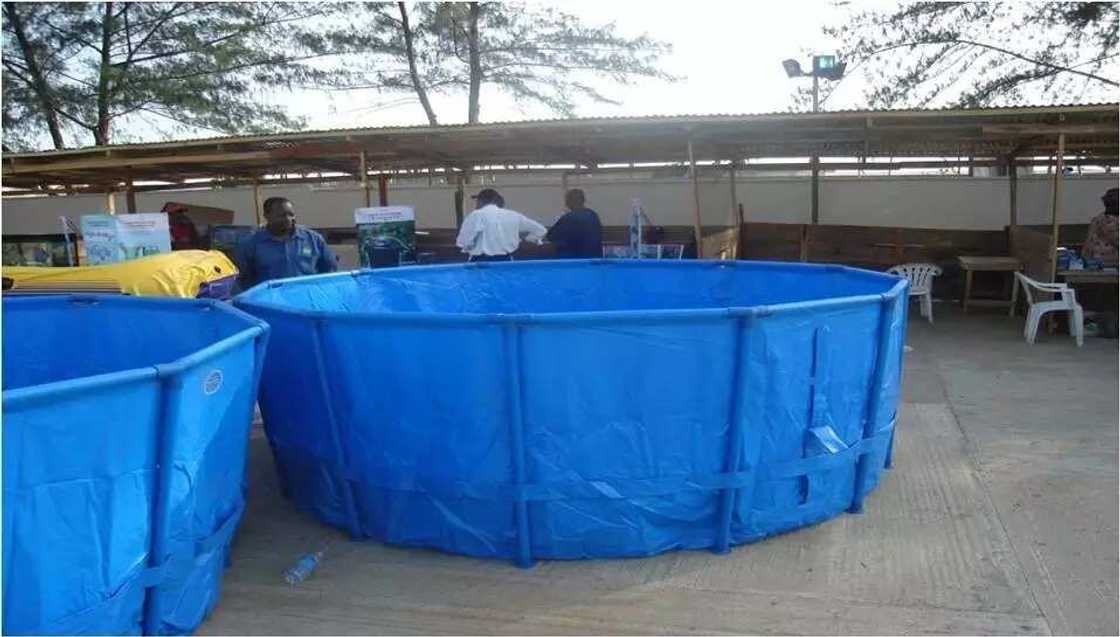
Catfish farming in plastic tanks
This method of catfish farming is handier and any space is available for it.
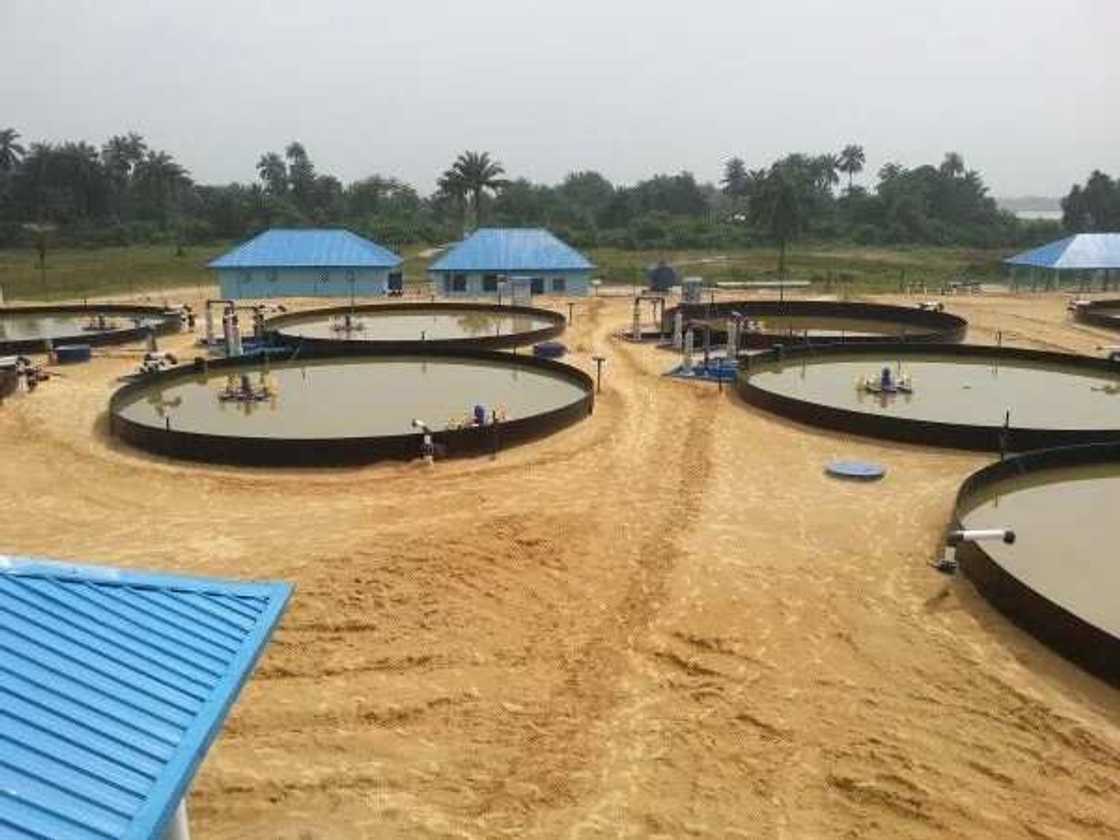
Catfish farming in earthen pond
Earthen pond is considered as more natural for breeding catfish but it requires a special place. This method allows to culture large quantity of fish, if to compare with small plastic tanks, where the number of fish is restricted to prevent overcrowding.
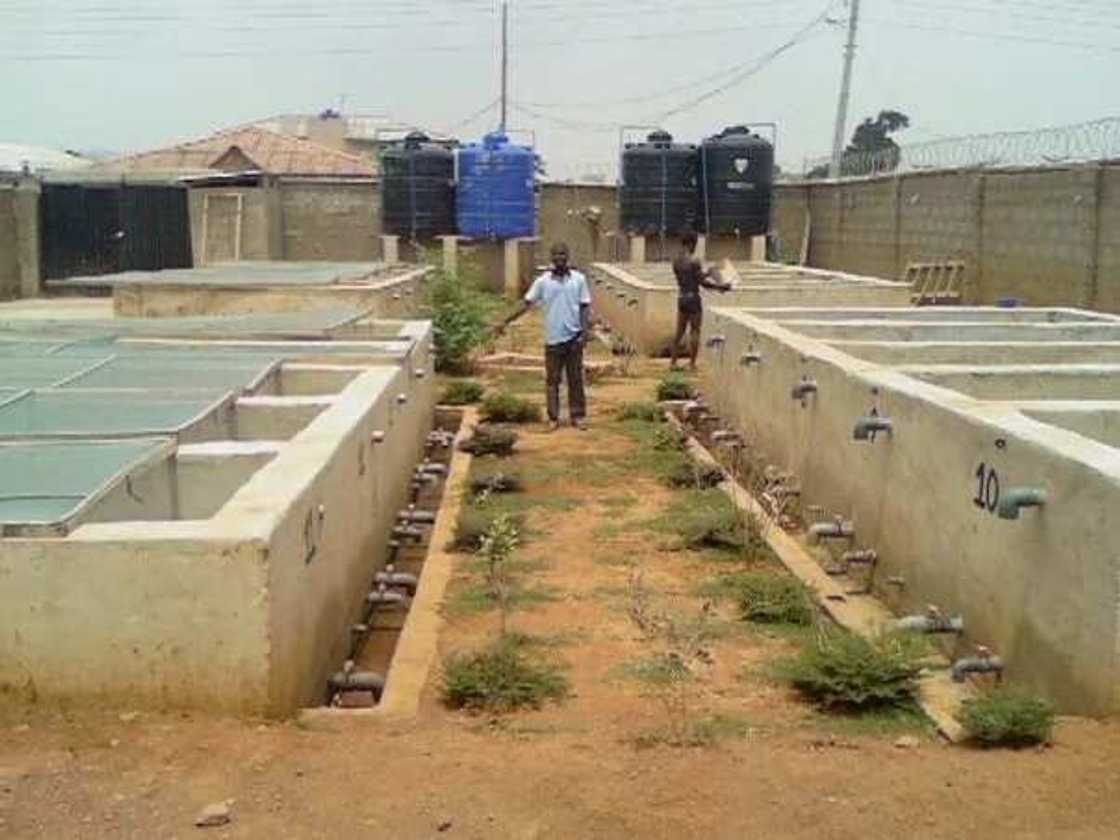
Catfish farming in concrete tanks
This method can become a gold middle between catfish farming in plastic tanks and earthen pond. It will cost you more than plastic tanks and requires more place.
It does not matter what kind of reservoir you will choose for your farm the main is the quality of the water.
Very often farmers use reservoirs with special bacteria, they are invisible but are the same useful as an expensive cleaning system. Microorganisms clean the tanks from the products of fish vital functions and rests of the food, and therefore the water remains perfectly clean.
Moreover, one kiloliter of water can contain about 300 kilograms of live fish. Of course, this is possible only with the regular removal of feces.
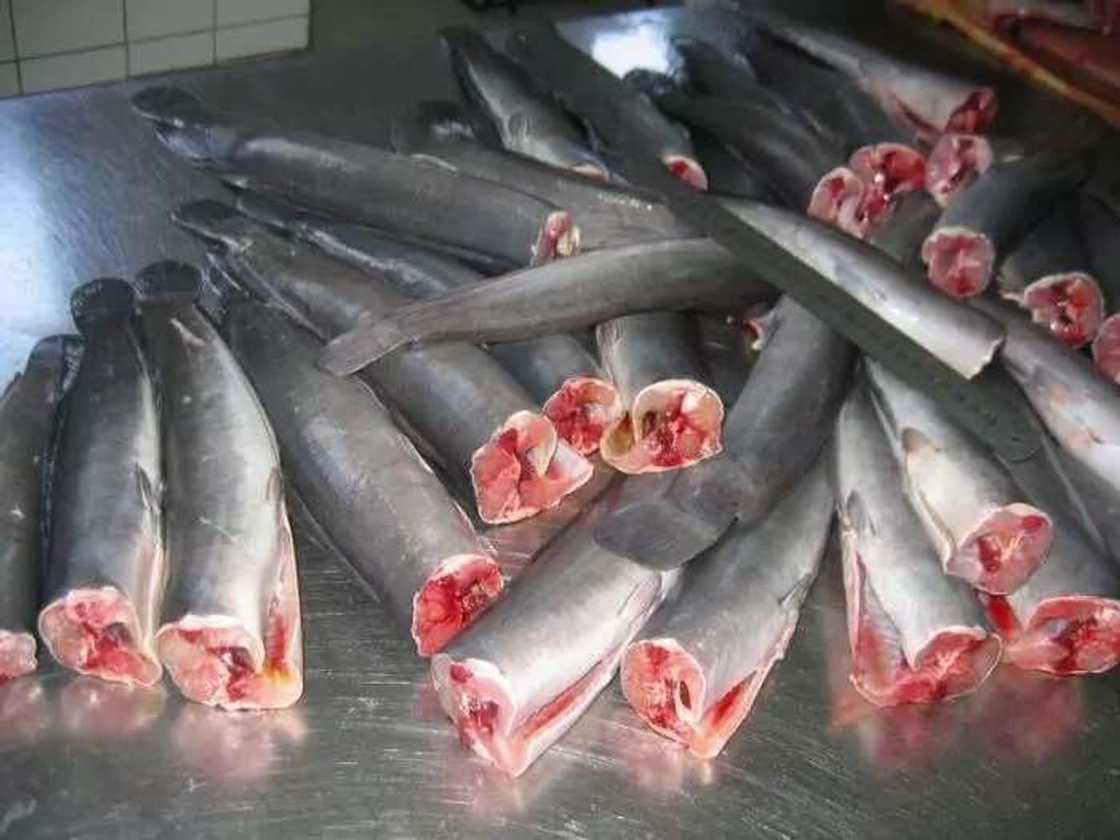
Catfish farming equipment
To produce 10 tons of catfish per year catfish farm should have the following equipment:
- eight pools of 1.5 m3 each;
- two clarifiers of 1.2 m3;
- a well tank with a volume of 2 m3;
- bio filter and 12 m3 of filter bags;
- a stove that bred water;
- a pump with a capacity of 1 kV;
- pipes, fittings;
- UV lamp with a power of 55 W;
- a feed distributor - 8 pieces.
Hope this information was useful for you. Calculate everything, ensure water supply, buy good equipment, purchase fingerling only of high quality, and visit special seminars. Such kind of business needs investments, knowledge, and persistence to bring you profit, so gather your strength and experience of other successful farmers and you will succeed. Good luck!
READ ALSO: Cucumber farming in Nigeria – Business tips
Source: Legit.ng


